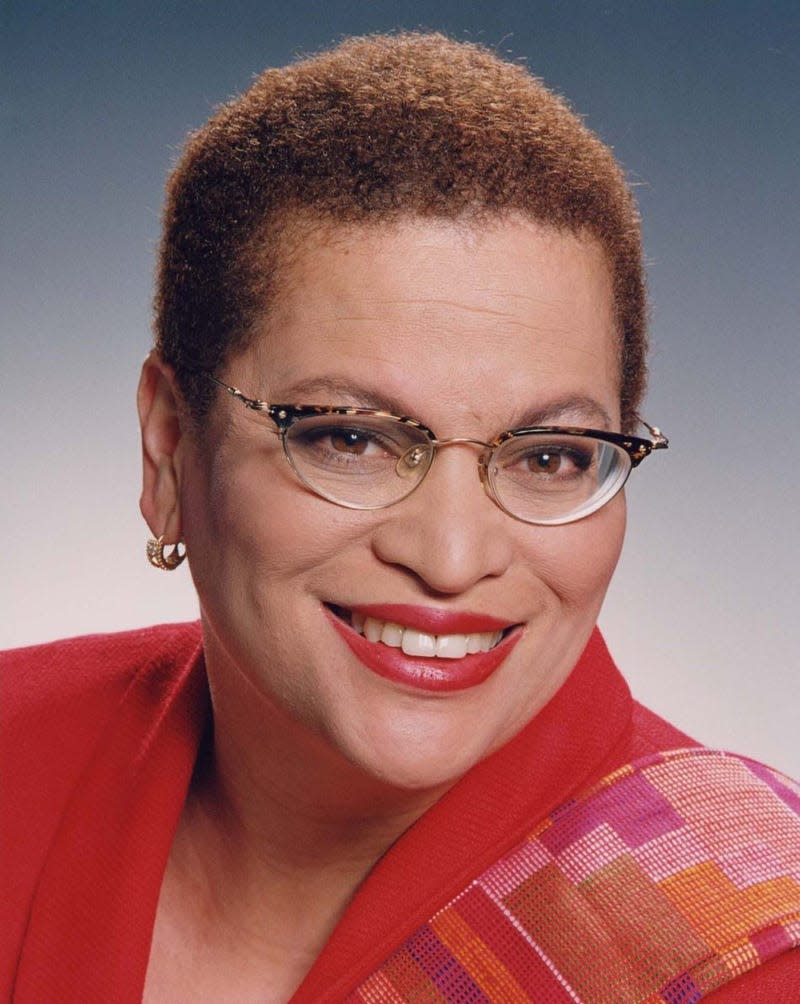Wells Fargo Must Be Held Accountable For Harming Black Homeowners

In late December, the Consumer Financial Protection Bureau ordered Wells Fargo to pay $3.7 billion in penalties and damages to settle claims that the banking giant engaged in an array of banking violations that harmed its clients.
Read more
Aside from Halle Bailey, Here Are Other Black Disney Actors and Characters We Love [Update]
The Best TV Series, Movies of 2022 to Binge Before the Year Ends [UPDATED]
Megan Thee Stallion Becomes 1st Black Woman to Land Forbes 30 Under 30 Cover
While the record-breaking nature of the fines levied against Wells Fargo drew headlines, many of us are left wondering if even those billions of dollars – and the threat harsher restrictions on its ability to do business – will be enough to rein in the egregious practices that have plagued the bank for over the last decade and led to financial hardships for thousands of consumers.
What is even more infuriating about Wells Fargo’s actions is that this is not the case of the wealthy and powerful ripping one another off, but instead one of the country’s largest banking institutions taking advantage of hard-working Americans – many of whom come from minority communities and have dealt with decades of institutional racism and mistreatment.
The CFPB, for example, has accused Wells Fargo of improperly recording customer payments on home and auto loans properly, wrongfully repossessing some borrowers’ cars and homes, and charging overdraft fees even when customers had enough money to cover the purchases made with their bank cards. This is a clear abuse of power by the bank, but also another instance of how Wells Fargo treats people it sees as powerless.
According to a federal investigation, Wells Fargo from 2004 to 2009 harmed Black and Hispanic communities through engaging in discriminatory lending practices against 30,000 Black and Hispanic borrowers. And a recent report found that the nation’s third largest bank by assets rejected more than half of the home refinance applications sent in by Black homeowners, while approving almost three-quarters of those sent in by white applicants.
Wells Fargo was also hit last year with a lawsuit in California that alleges the bank approved more white borrowers for a mortgage loan compared to Black applicants in 2020.
It’s not just on the consumer front where Wells Fargo has faced accusations of brazen bias in its practices, as federal prosecutors in New York opened a criminal investigation last year into whether the bank violated federal laws by conducting fake interviews with female and minority candidates for jobs that had already been filled in order to pad its diversity statistics.
Wells Fargo needs to account for its mistreatment of minorities across the country and for seeing non-White Americans as easy targets to take advantage. The billions of dollars in fines levied against it are sadly little more than a slap on the wrist to Wells Fargo and goes in federal coffers – not into the wallets of the people harmed by the bank’s misdeeds.
There have been calls in the past for Wells Fargo to atone for its sins against the Black community, most notably last year Corporate Accountability called on the bank to pay reparations after it acquired a number of former banks that were founded by or benefitted from slavery. The non-profit also criticized the bank for bankrolling two of the country’s largest private prison conglomerates.
Getting Wells Fargo to admit its checkered history, let alone pay reparations, is an uphill battle, but that doesn’t mean that it cannot be held accountable.
As evidenced by last month’s fines, federal regulators have proven highly successful in getting the bank to pay billions of dollars, but there needs to be accountability for the people it harmed.
Many black homeowners lost their homes due to these practices, and they have not received any financial assistance or compensation from the bank. In order for justice to be truly served, Wells Fargo must be required to make meaningful reparations to the Black communities that were disproportionately affected by the financial crisis it helped create.
There are numerous ways this could take shape – offering financial assistance to those who lost their homes due to the bank’s predatory lending practices or investing in programs that help to rebuild and strengthen these communities are just two example – but action needs to be taken.
And that action needs to be taken soon for Wells Fargo to finally learn its lesson and stop harming the very same people it purports to help.
Dr. Julianne Malveaux is an economist, author, and Dean of the College of Ethnic Studies at Cal State LA.
More from The Root
15 Priceless Black Twitter Moments Worth Remembering [Updated]
Madea Goes to Amazon: Tyler Perry Lands 4-Year Film Deal With Amazon Studios
Sign up for The Root's Newsletter. For the latest news, Facebook, Twitter and Instagram.

